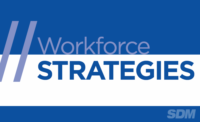Recently, I was granted the opportunity to speak with chief operations officer of Integrated Security Communications (ISC), Jim Lonie. During the interview, Lonie and I discussed the benefits of recurring monthly revenue (RMR) and important considerations for integrators adding RMR services to a portfolio.
RMR has evolved in terms of services offered and the agreements over the past decade. “RMR is no longer just the traditional alarm monitoring and service agreements,” Lonie revealed. “It’s no longer viewed as only monthly revenue; rather, it has evolved into multi-year RAR Revenue Accounting and Reporting agreements. … [These agreements] range from alarm monitoring and traditional service agreements to software agreements that provide for releases and maintenance.”
These may include other products and services such as SaaS subscriptions for cloud platform systems and managed services for cloud or premise-based systems.
Lonie added that there is an increasing need for program management and related services, consistent with “embedded roles that operate as an extension of our [ISC integration] clients’ security department resource where our embedded employees are an extension of the client’s team. We create and maintain the system standards, procedures and playbooks at a client’s facility,” he explained.
Lonie also shared that RMR opportunities for monitoring health and the performance of systems off-site (the company’s security operations center and video security operations center) enable additional services including data mining, forensic investigative support and reporting. In addition, those services continue to evolve — specifically as artificial intelligence (AI), behavioral analytics and machine learning provide more preemptive opportunities to avert incidents and failures.
Lonie emphasized that RMR is a consistent revenue stream stabilizing cash flow and the foundation of a successful business. “Installations become the icing on the cake,” he explained, adding that RMR keeps the service department productive, which helps to balance the up and down cycle of new sales acquisitions and can even lessen the financial hardship created by industry-wide supply issues.
An important consideration in the accounting of RMR services is that the billing and invoicing for RMR services differ from installation projects. “How an integrator invoices its customers depends on how the integrator recognizes revenue,” Lonie said. “For example, alarm monitoring customers often pay a year’s service in advance.” In contrast, “If RMR services are paid a year in advance, the integrator can only accept one month of revenue at a time. The remainder is transferred into an escrow account and acknowledged monthly.” Regardless of the billing cadence, security integrators must be careful when getting paid upfront, and adhere to accounting regulations such as Sarbanes Oxley, Lonie stressed.
His recommendation for integrators who want to start offering RMR services: “Start local.” The integrator needs to be honest about what can be supported, he added. “Jumping into a national account without a network of nationwide partners isn’t planning for success and starting local enables the integrator to grow its business.” Likewise, as the integrator and business opportunities expand geographically, it’s critical to consider labor pricing adjustments. Lonie referenced the example that New Jersey pricing differs from places like Chicago or Idaho. While the product pricing will be the same, the labor pricing built into the RMR offering will be vastly different.
Avoiding the pitfalls and knowing the benefits of offering RMR services can be a game changer for systems integrators. As integrators expand their services globally, there will be additional challenges to consider. Recognizing what an integrator can offer and setting up their program on the right foot will enable them to grow and capture the opportunities in RMR services.
“If RMR services are paid a year in advance, the integrator can only accept one month of revenue at a time. The remainder is transferred into an escrow account and acknowledged monthly.” — Jim Lonie, ‘Integrated Security Communications











